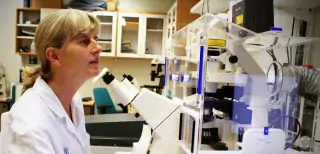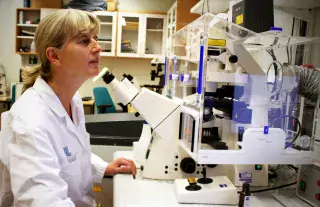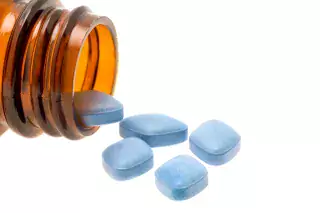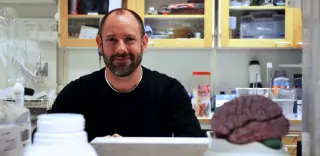News archive
On this page you can search for older news. Choose a topic, type of news or enter your own keyword to filter out news.
View compact
A study published in Science Translational Medicine shows that small molecules that specifically inhibit an important selenium-containing enzyme may be useful in combating cancer. When researchers at Karolinska Institutet treated cancer in mice using these molecules, they observed rapid tumoricidal effects. Researchers now hope that this new principle for cancer treatment will eventually be developed for use in humans.
News

The failure of drugs such as SSRIs, used to treat depression, can be a result of genetic variations in patients. Variations within the gene that encodes the CYP2C19 enzyme results in extreme differences in the levels of escitalopram achieved in patients, according to a new study published in The American Journal of Psychiatry. Prescribing the dose of escitalopram based on a patient’s specific genetic constitution would greatly improve therapeutic outcomes.
News
The dynamics among certain so-called G protein-coupled receptors, of vital importance for the function of cells in the body, are different than previously believed. This has been reported by researchers from Karolinska Institutet in the journal Nature Communications. As these types of receptors are the target for many different medicines, the new finding opens the doors to completely new opportunities within pharmacology and pharmaceutical development.
News

In the spring of 2016, KI researcher Tore Curstedt was nominated for a Lifetime Achievement Award by the European Patent Office for having devoted his life to Curosurf, a drug that has helped to activate the lungs of millions of preterm babies.
News
In recent decades much hope was based on the development of personalised drug treatments, in which genetic tests determine the choice and optimal dose of medication for each individual patient. However, the real breakthrough is still to be seen, and now researchers at Karolinska Institutet show in two separate scientific papers that many more gene variants affect how a person responds to medication than previously thought – and thus that today’s analytical tools are too coarse.
News
In a study in mice, scientists at Karolinska Institutet in Sweden have discovered a new potential therapy that may reduce brain damage following stroke in type 2 diabetic patients. The suggested drug is already approved for the treatment of type 2 diabetes. However, the scientists hope that this new results, presented in the scientific journal Diabetes, also opens up the possibility to decrease brain injury after stroke in other patient groups with a high stroke risk.
News




